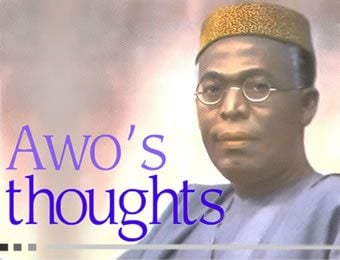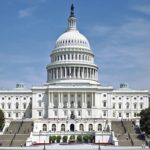Continued from last week
WHENEVER the word CONSTITUTION is mentioned, we quickly conjure up in our minds the picture of a special legal document which contains various provisions relating to:
1) The organs of government, together with their
characteristics and the mode of establishing them;
2) The powers and functions of such organs, their
relationship inter se, and with the public at large; and
3) The enforceable rights and duties of the citizen.
Indeed, Wade and Phillip say that:
‘By a constitution is normally meant a document having a special legal sanctity which sets out the framework and the principal functions of the organs of government of a state and declares the principles governing the operations of those organs.’
But a constitution need not be, and has not always been, in writing. Primitive and illiterate societies have no written constitution or laws; nor did most countries of Africa before the advent of European rule. Up till today, British constitution is only partly written; so is the constitution of New Zealand.
What then is a constitution?
According to the authors of the Shorter Oxford English Dictionary, constitution is defined as:
1) ‘The mode in which a state is constituted or organised.
2) ‘The system or body of fundamental principles according to which a nation, state, or body politic is constituted or governed.’
Here, a distinction must be drawn between CONSTITUTION and GOVERNMENT, and between STATE and NATION. Among the members of the general public, CONSTITUTION and STATE are respectively regarded as synonymous with GOVERNMENT and NATION. Strictly speaking, they are not, GOVERNMENT means:
‘The body of persons charged with the duty of governing a state.’
A cursory comparison between the meanings of CONSTITUTION and GOVERNMENT makes the distinction clear and indubitable. Indeed, the distinction is so sharp that it is erroneous, in serious discussions, to speak of FEDERAL OR UNITARY GOVERNMENT.
A STATE has been defined by Salmond as: ‘an association of human beings established for the attainment of certain ends’.
Keeton’s definition is more explicit than Salmond’s, and distinguishes a state more clearly from other human associations like partnerships, limited liability companies, clubs, etc. It runs as follows:
‘A state is an association of human beings, whose numbers are at least considerable, occupying a defined territory, and united with the appearance of permanence for political ends, for the achievement of which certain governmental institutions have been evolved.’
On the other hand, according to three distinguished authorities, a NATION is defined as:
1) SHORTER OXFORD ENGLISH DICTIONARY – ‘A distinct race or people, characterised by common descent, language, or history, usually organised as a separate political state and occupying a definite territory.’
2) SALMOND – group of persons who feel that they are distinct from others on grounds of culture, language, and sometimes common ancestry.
3) KEETON – ‘A community of persons linked either by their historical development, common speech or common social customs, or several of these criteria, in such a way that such persons would still tend to cohere even if separated under different governments.’
From these definitions of STATE and NATION, four important points emerge.
FIRST: A state may consist of a number of nations – as in the USSR, India, Nigeria, and Switzerland.
SECOND: A nation may be divided into a number of States; as in Ancient Greece, and as is the case with the Ewe-speaking people in Ghana and Togo, the Kurd-speaking people in USSR, Iraq, Iran, Turkey and Syria, the Greek-speaking people in modern Greece and Cyprus, and the German-speaking people in Western Germany and Eastern Germany.
THIRD: A nation may be coextensive with a state; as in Portugal and Italy.
FOURTH: Whilst a nation need not have political ends in order to maintain its cohesion, unity, and corporate existence, a state must.
In other words, whilst it is imperative that the elements or objectives for the cohesion and continued corporate existence of a state must be consciously organised and continuously sustained by the members of the state, all that a nation needs for the preservation of its cohesion and corporate continuance are already ingrained at birth, as unconscious powerful tendencies, in the members of the national group, and nurtured by many self-sustaining, cultural ties and sentiments.
To be continued






